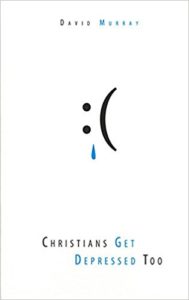Generally, as we head in to summer, Pastor Andrew and I will take the opportunity to recommend some books for those moments when you can kick your feet up and burry yourself in a good book. I have five more recommendations this week:
 Church History in Plain Language by Bruce Shelley remains a popular and accessible introduction to church history. Many Christians have taken greater interest in church history with this year’s focus on the 500th anniversary of Luther’s Ninety-Five Theses. It’s strengths are its accessibility for any interested layperson, and the breadth of its coverage as Shelley traces the path of the church throughout its 2000 year history. If you are relatively new to the major movements in the church this is a great place to start.
Church History in Plain Language by Bruce Shelley remains a popular and accessible introduction to church history. Many Christians have taken greater interest in church history with this year’s focus on the 500th anniversary of Luther’s Ninety-Five Theses. It’s strengths are its accessibility for any interested layperson, and the breadth of its coverage as Shelley traces the path of the church throughout its 2000 year history. If you are relatively new to the major movements in the church this is a great place to start.
 Speaking of the Reformation, if you are looking specifically at this critically important juncture of the church Michael Reeves’ The Unquenchable Flame is a great place to start. This book is well written and relatively short (191 pages). Reeves includes helpful short sketches of major figures and events spread throughout his narrative style which makes this title as close to a page turner as you will find in the church history section. I like the fact that he gives some medieval context for the Reformation by looking at some of the issues and church reformers over the three centuries prior to Luther. I also like that he encourages us to think of the need for an ongoing reformation in the church. If you need any further encouragement, Mark Dever says it is “the best brief introduction to the Reformation I have read.”
Speaking of the Reformation, if you are looking specifically at this critically important juncture of the church Michael Reeves’ The Unquenchable Flame is a great place to start. This book is well written and relatively short (191 pages). Reeves includes helpful short sketches of major figures and events spread throughout his narrative style which makes this title as close to a page turner as you will find in the church history section. I like the fact that he gives some medieval context for the Reformation by looking at some of the issues and church reformers over the three centuries prior to Luther. I also like that he encourages us to think of the need for an ongoing reformation in the church. If you need any further encouragement, Mark Dever says it is “the best brief introduction to the Reformation I have read.”
 Christians Get Depressed Too, by David Murray, is an important addition to the Christian perspective on mental health. To some the title’s statement may seem obvious, but for many Christians struggling with depression they have the added burden of shame. Far too many have been taught that if one is a true Christian one’s life is marked by freedom and joy rather than debilitating sadness. Some even link depression to significant sin. Some sufferers are left to wonder, “Am I actually a Christian?” Even churches and Christians genuinely compassionate toward suffering in general (say economic, relational, or physical) are sceptical toward the inner turmoil experienced by so many. Murray’s little 100-page book helpfully dispels many of these common misconceptions and offers real Christian hope. This balanced book is written with a very pastoral tone, and I commend it not only to those suffering from depression but to anyone who longs to see greater liberty for God’s children.
Christians Get Depressed Too, by David Murray, is an important addition to the Christian perspective on mental health. To some the title’s statement may seem obvious, but for many Christians struggling with depression they have the added burden of shame. Far too many have been taught that if one is a true Christian one’s life is marked by freedom and joy rather than debilitating sadness. Some even link depression to significant sin. Some sufferers are left to wonder, “Am I actually a Christian?” Even churches and Christians genuinely compassionate toward suffering in general (say economic, relational, or physical) are sceptical toward the inner turmoil experienced by so many. Murray’s little 100-page book helpfully dispels many of these common misconceptions and offers real Christian hope. This balanced book is written with a very pastoral tone, and I commend it not only to those suffering from depression but to anyone who longs to see greater liberty for God’s children.
 David Mathis’ habits of grace is a much appreciated addition to the field of spiritual discipline. He uses a term I like to use in the place of “spiritual disciplines” by speaking of God’s “means of grace” for his children. He writes that the ‘means of grace’ are meant to become our ‘habits of grace’. These habits become a means through which we experience Christian joy and edification and God is glorified. He presents three primary ‘means of grace’ that create the foundation from which a Christian disciple grows: knowing God’s voice through Bible-reading, having God’s ear through prayer, and belonging to his body through fellowship. These three graces provide a simple and instructive structure to Mathis’ book that won’t leave you struggling to understand or apply these basic practices. In fact, his goal is for the reader to see how simple and realistic it is to incorporate these habits of grace into your daily life.
David Mathis’ habits of grace is a much appreciated addition to the field of spiritual discipline. He uses a term I like to use in the place of “spiritual disciplines” by speaking of God’s “means of grace” for his children. He writes that the ‘means of grace’ are meant to become our ‘habits of grace’. These habits become a means through which we experience Christian joy and edification and God is glorified. He presents three primary ‘means of grace’ that create the foundation from which a Christian disciple grows: knowing God’s voice through Bible-reading, having God’s ear through prayer, and belonging to his body through fellowship. These three graces provide a simple and instructive structure to Mathis’ book that won’t leave you struggling to understand or apply these basic practices. In fact, his goal is for the reader to see how simple and realistic it is to incorporate these habits of grace into your daily life.
Happy reading to all!
Much love,
Pastor Gary

As we gather for Sunday worship, we want you to meet with God and be transformed by the Word. Prepare your heart by reading the passage and listening to the songs for Sunday.
